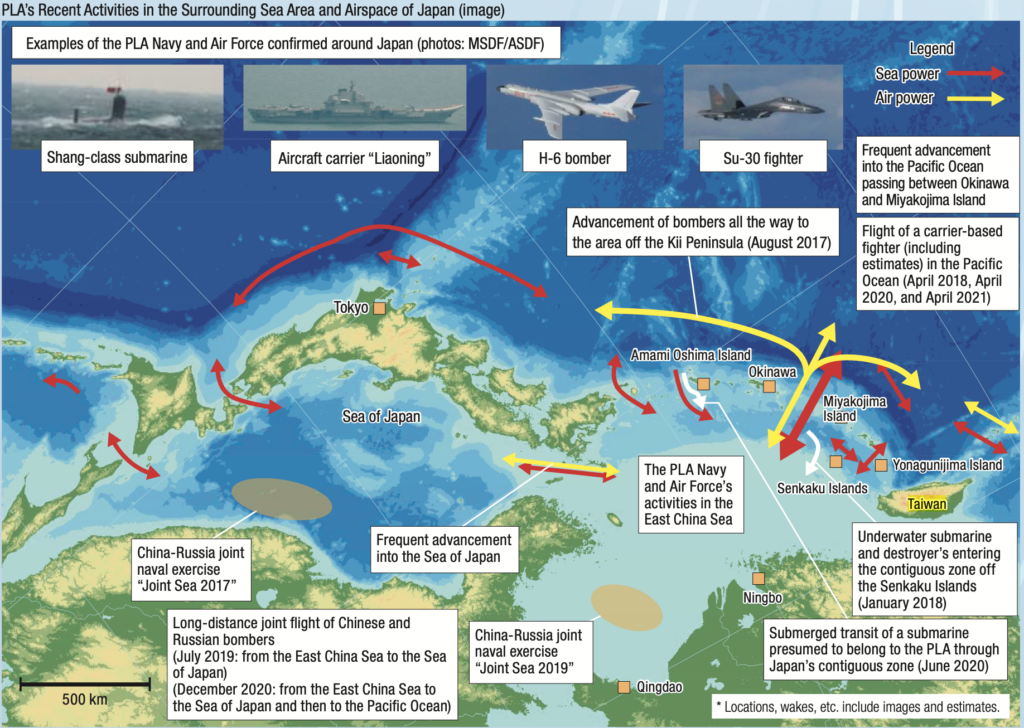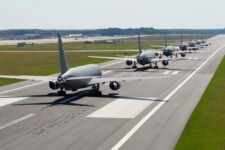
Aircraft from the Chinese People’s Liberation Army (PLA) air force fly in formation during a parade to celebrate the the 100th founding anniversary of the Chinese Communist Party on July 1, 2021 in Beijing, China. (Getty Images)
AFA: The head of Pacific Air Forces says two Chinese and one Russian pilot have engaged in “instances of unprofessional flying” in the last year. But that’s just the tip of the iceberg of the Sino-Russian operations, Gen. Kenneth Wilsbach said at the annual Air Force Association conference today.
Those three incidents were “probably just pilot buffoonery while executing an intercept,” Wilsbach said. “But what I’ll tell you is that there are incidents almost every day. Either Chinese, or Russia — or both of them — intercept one of our platforms that are out flying missions almost every day, and multiple times in a day is not uncommon.”
“And so my main foundational comment would be that we’re seeing professional aviation by the pilots of the Chinese Air Force, as well as the Russian Air Force,” Wilsbach did go on to say.
However, when asked if there was evidence that the two countries were coordinating their probes of allied and partner Extended Economic Zones or their Air Defense Identification Zones (ADIZ), “I don’t know if they are or if they are not,” he said.
The US, of course, is not alone in watching the Chinese air and ship incursions. Japan’s recently released Defense White Paper warned that China’s overflights and naval incursions “have become a matter of grave concern to the region including Japan and the international community,” one which will require new capabilities and doctrine to counter.

Graphic by Japanese Ministry of Defense
The other news Wilsbach made was about India’s coming purchase of Russia’s S-400, considered by many to be the world’s best air defense system — but one which may come with major political headaches for any US partner or ally who considers it.
He said he had no objections to India buying the system “in the current environment.” But — and this is a big but — he said India’s action “will perhaps affect a future purchase by India, if they were interested in purchasing other defense equipment from us. But that’s out of my lane, and I don’t really talk about that, because it’s tomorrow stuff.”
From the context of his remarks, it was clear Wilsbach was signaling to India that any hope of buying the F-35 would face serious obstacles from US officials concerned that Russia could gain crucial information about the F-35s capabilities and weaknesses, should it share air space with the S-400. Turkey was famously thrown out of the F-35 program because of its S-400 procurement, of which it was a partner and from which it stood to make considerable economic gains.






















